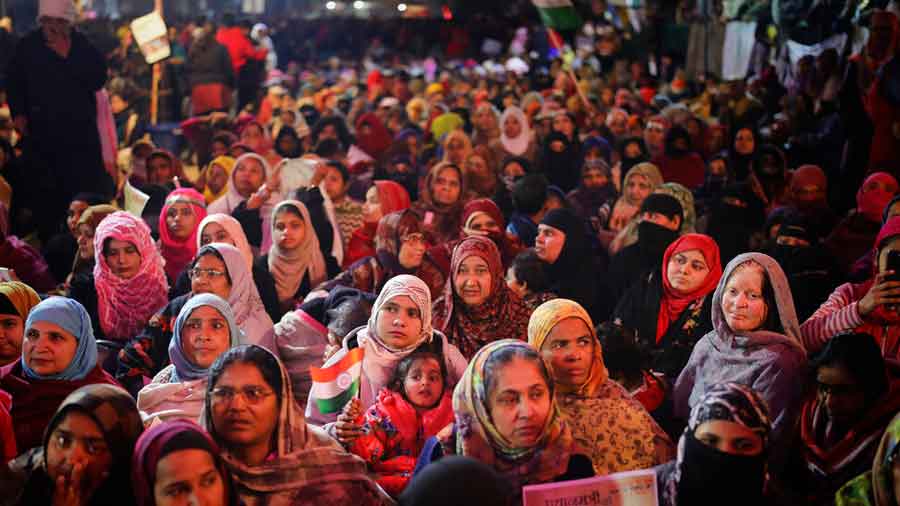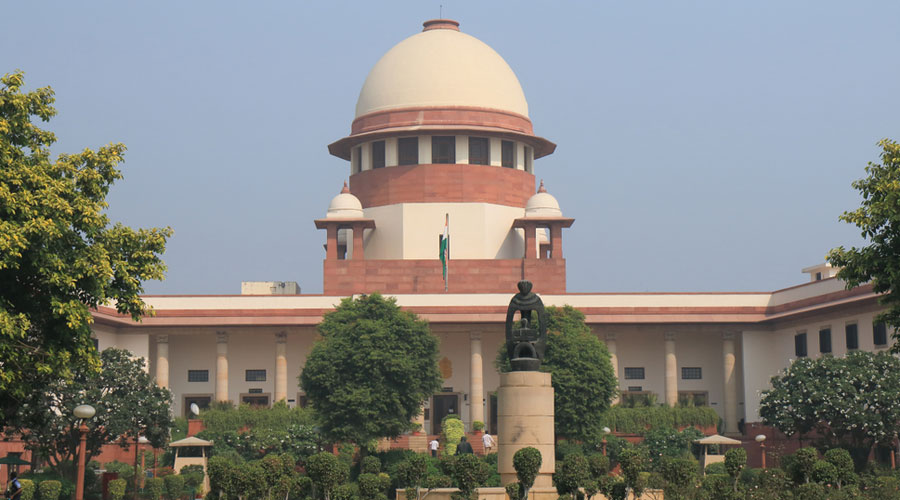Participants in the largest continuous women-led stir at Shaheen Bagh against the new citizenship regime said the Supreme Court’s verdict on the protest was expected, but left key issues unresolved.
In response to two pleas against the agitation that started in December and went on for more than 100 days, the Supreme Court in February had sent senior lawyers Sanjay Hegde and Sadhana Ramachandran as interlocutors to talk to the leaderless gathering about allowing traffic to pass through GD Birla Marg, which had been barricaded by both protesters and police.
On Wednesday, the court ruled that public places cannot be occupied indefinitely and that protests cannot obstruct citizens.
Shaheen Kausar of the Social Democratic Party of India, who was one of the organisers of the protest, had unsuccessfully tried to convince the crowd to remove obstacles placed on one side of the road and, after the announcement of the lockdown, call off the permanent sit-in.
“I respect the court, and both the police and protesters must be praised for their efforts to prevent a second Jaffrabad (the place in northeast Delhi where communal riots broke out in February after mobs attacked women blocking the road to protest against the new law). Today, we can see that there are no answers to the biggest current questions on education, employment and peace. Protest was and is the last resort, and while sit-ins on roads are not new, it seems that only one community is the target of arrests and defamation,” she told The Telegraph.
Ritu Kaushik, secretary of the Delhi unit of All India Mahila Sanskritik Sanghatan — the women’s wing of SUCI (Communist) — said the verdict doesn’t surprise her. Kaushik often handled the mic on the Shaheen Bagh stage and had stuck it out until police cleared the area in March. “Neither are protests, even sit-ins, on roads a new thing, nor is the court’s response.”
“Even during the Emergency, the point of view of the court gradually changed in the face of public protests. Today also, we continue to struggle in defence of the Constitution…. and will continue to do so by all means possible to resist the CAA and related laws,” she added.
Mohammed Asif, who used to run the Fatima Sheikh-Savitri Phule Library under a bus stop near the protest site, said: “It was never indefinite. The protest was merely to be staged until the CAA was repealed. The question of moving to some other place like Jantar Mantar was debated when the interlocutors had visited. There are restrictions on the number of people and the timing of protests in Jantar Mantar. There is no other place or park to protest in Shaheen Bagh or perhaps any other Muslim majority area in Delhi. The question people asked interlocutors was whether the press will cover us and the government even attempt to engage with us if our stir caused absolutely no inconvenience to anyone.”












